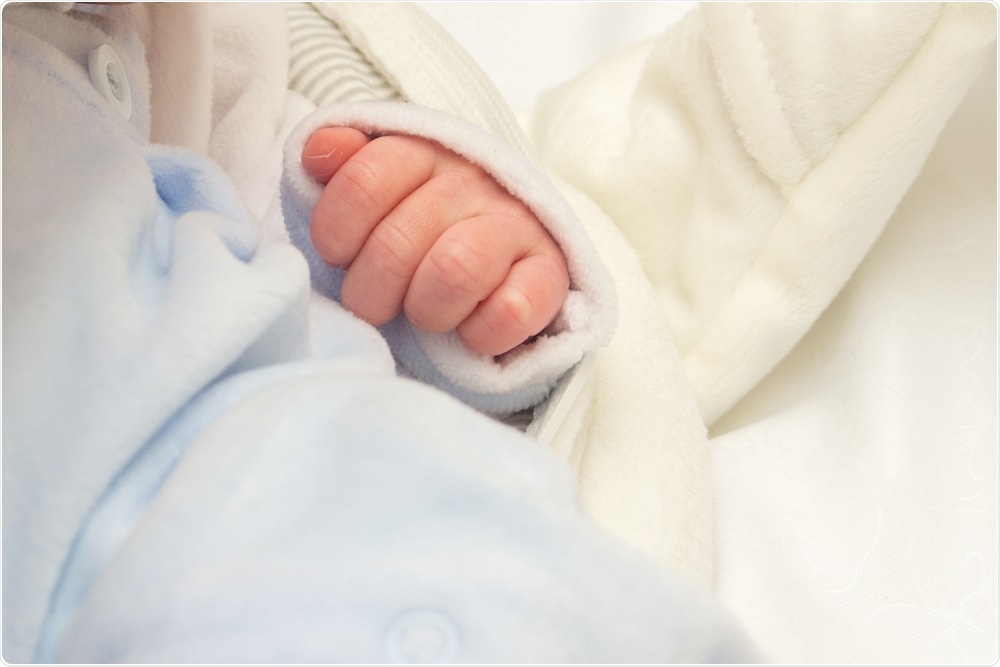
Genetic test for low birth weight on the horizon
Researchers from the University of Queensland in collaboration with The University of Exeter, University of Oxford and Cambridge University, have successfully identified 190 genetic factors associated with a low birth weight. The results of the study titled, “Maternal and fetal genetic effects on birth weight and their relevance to cardio-metabolic risk factors” were published in the latest issue of the journal Nature Genetics.
 pyansetia200 | Shutterstock
pyansetia200 | ShutterstockThe researchers found that two-thirds of the time, these links hold true. Dr Nicole Warrington from the Diamantina Institute of UQ said that birth weight of a baby was one of the most important factors that determined infant health:
A quarter of the genetic links that were identified could be predicted from the mother’s genes. The scientists noted that the mother’s genes predicted whether a baby would be born prematurely, as well as the available nutrients (in the form of glucose, a type of sugar).
This is the first study of its kind to consider the effects of both the mother and baby’s genes on birth weight, said statistical geneticist Professor David Evans. “It is particularly useful to know about the maternal genetic influences because the identity of these genes gives us clues as to which factors, such as glucose, influence fetal growth. Better understanding of the causes may mean we can help ensure babies are born at healthy weights,” he added.
Dr Warrington said that they also followed up the details of genetic associations with birth weight and diseases later in life as well. She said, “The methods we have developed to disentangle maternal and fetal genetic influences on birth weight have real potential to tell us also about the effects of the intrauterine environment on later-life outcomes… For example, smaller babies are more likely to have higher blood pressure in adulthood. Our work shows that this is due to genetic effects,” she said.
The team looked at birth weight of 321,223 and corroborated it with the birth weight of their babies in 230,069 mothers. They successfully identified 190 independent association signals. Of these 129 have never been reported before.
The authors also found a genetic association between low birth weight and high blood pressure later in life. They found that if the mother’s genetic make-up predicted her to have a high blood pressure, the baby would also develop high blood pressure later in life.
Previous research found an association between the transcriptome and BMI
Authors S Peng from Department of Genetics and Genomic Sciences, Icahn School of Medicine at Mount Sinai, New York and colleagues recently looked at the effects of genetic modulation of the placenta and its effects on birth weight and childhood obesity. Their study titled, “Genetic regulation of the placental transcriptome underlies birth weight and risk of childhood obesity,” was published recently in December 2019 in the journal PLoS Genetics.
They found that the placenta and its genetic make-up played an important role in birth weight, childhood obesity and body mass index during childhood. Their results revealed that alterations in the transcriptome of the placenta or genes of the placenta that are transcribed into proteins especially at a specific location called the “GWAS” affected birth weight, childhood BMI and childhood obesity in the babies.
Further to this, authors RN Beaumont from Institute of Biomedical and Clinical Science, University of Exeter Medical School, University of Exeter, and colleagues last year had performed a similar study in a large cohort of 86 577 women.
The study titled, “Genome-wide association study of offspring birth weight in 86 577 women identifies five novel loci and highlights maternal genetic effects that are independent of fetal genetics,” was published last year in Human Molecular Genetics.
The team looked at a composite data of 8.7 million SNPs in up to 86 577 women of European descent from the Early Growth Genetics (EGG) Consortium and the UK Biobank. The authors explain that fetal genetics has been a focus of risk factor studies in low birth weight. Same cannot be said about maternal genetic variation. The team found that there were 10 loci in the maternal genetic codes that were associated with fetal birth weight.
Some of these have been earlier associated with adult blood sugar levels, levels of sex hormones and duration of pregnancy in adults. This new association in addition adds to factors such as immune function of the mother and her blood pressure during pregnancy.
The same effect was seen in babies of African and Asian decent
Yet another study last year by F. Tekola-Ayele from Epidemiology Branch, Division of Intramural Population Health Research, Eunice Kennedy Shriver National Institute of Child Health and Human Development, National Institutes of Health, and colleagues looked at the genetic variants associated with low birth weight among babies of African and Asian descent. Their study titled, “High burden of birth weight-lowering genetic variants in Africans and Asians,” was published last year in BMC Medicine.
The team writes that despite similar maternal conditions, fetal growth and birth weight shows regional and population variations. They explain that many of these factors are not explained by environmental factors and could be explained by genetic differences.
The team extracted genomic data from phase 3 of the 1000 Genomes Project for 2504 participants from 26 global populations. The data was classified into five super-populations. The team found 59 “autosomal single-nucleotide polymorphisms” or SNPs that were associated with birth weight.
European and non-European descent was compared. They found that those with African and Asian (East and South) ancestry compared to Europeans had more birth weight lowering genetic variations. The authors conclude, “This finding is consistent with the high incidence of low birthweight in the two populations.”






















.png)












No hay comentarios:
Publicar un comentario